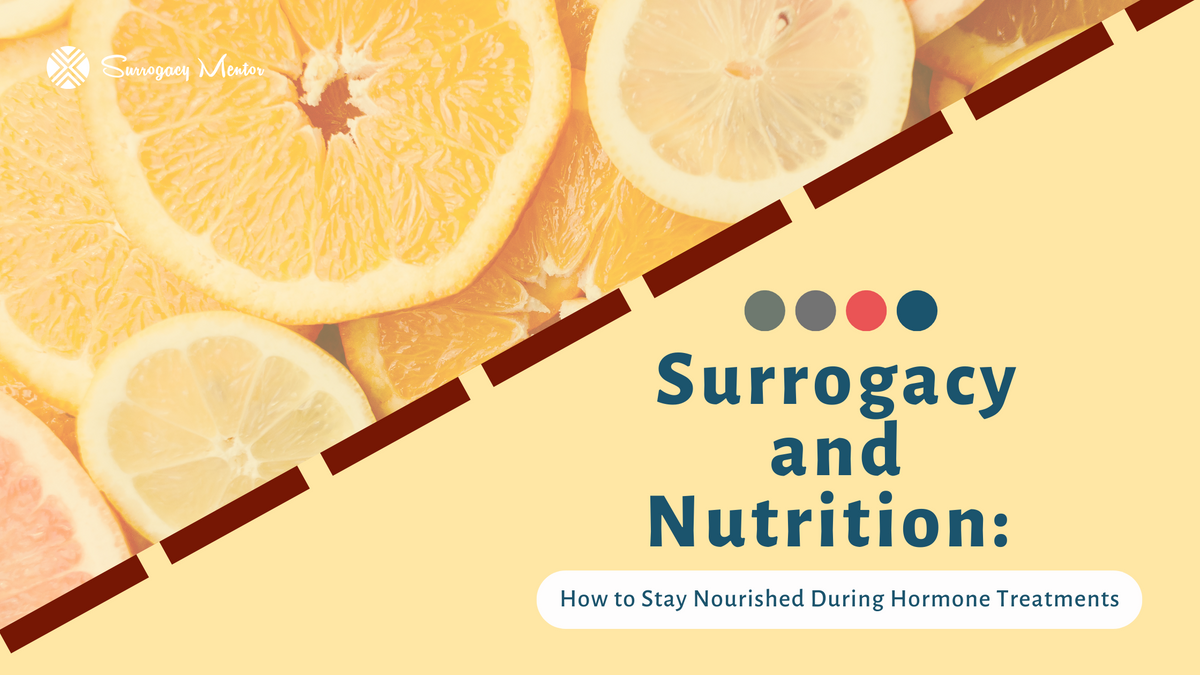One of the steps in preparing for surrogacy is taking fertility medications that help your body get ready for embryo transfer. These medications—often including hormones like estrogen and progesterone—play an important role, but they can also bring side effects such as bloating, fatigue, or nausea.
The good news? A balanced diet and mindful nutrition can make a big difference in how you feel during this stage of the journey.
(Disclaimer: This content is for informational purposes only and is not a substitute for professional medical or nutritional advice. Always consult your doctor or a licensed healthcare provider regarding your individual health needs.)
Why Nutrition Matters During Hormone Treatments
Fertility medications are designed to prepare your uterine lining for implantation and support early pregnancy. Because these medications affect your hormone levels, they can sometimes lead to physical changes like:
Water retention and bloating
Increased appetite
Mood swings or irritability
Changes in digestion
Eating a balanced diet can help stabilize your energy, support your body’s response to medication, and improve your overall sense of well-being.
TAKE THE SURROGACY QUIZ >>>>> CHAT WITH A SURROGATE
Foods That Can Support You
While there’s no one-size-fits-all “fertility diet,” here are some general foods that may help support your body during treatments:
🥦 Fruits and Vegetables
Packed with antioxidants, vitamins, and fiber to support digestion and reduce inflammation.
🍞 Whole Grains
Brown rice, quinoa, oats, and whole wheat bread provide steady energy and may help balance blood sugar.
🥩 Lean Protein
Chicken, turkey, eggs, and plant-based proteins (like beans and lentils) support tissue repair and hormone balance.
🥑 Healthy Fats
Avocados, nuts, seeds, and olive oil can promote hormone health and provide long-lasting energy.
💧 Hydration
Don’t forget water! Staying hydrated helps manage bloating and supports your body’s natural functions.
TAKE THE SURROGACY QUIZ >>>>> CHAT WITH A SURROGATE
Foods and Habits to Limit
Processed Foods: High-sugar or high-salt snacks can worsen bloating.
Caffeine: Moderate intake is usually fine, but check with your doctor. Too much can affect sleep or hydration.
Alcohol: Avoid during treatment and pregnancy, as it may interfere with medications.
Gentle Lifestyle Tips
Along with food, these lifestyle practices can make hormone treatments more manageable:
Smaller, frequent meals if you feel nauseous
Light movement like walking or yoga to support circulation and mood
Adequate rest—your body is working hard!
Final Thoughts
Hormone treatments are a temporary but important part of your surrogacy journey. By focusing on balanced nutrition, hydration, and gentle self-care, you’ll give your body the support it needs during this stage.
At Surrogacy Mentor, we’re here to empower you with knowledge and encouragement through every step of your journey—from screening to transfer to delivery.
💬 Curious if you qualify to be a surrogate? Take our quick 2-Minute Surrogacy Quiz to get started today!
Follow Surrogacy Mentor on Instagram , Facebook, YouTube and TikTok!

